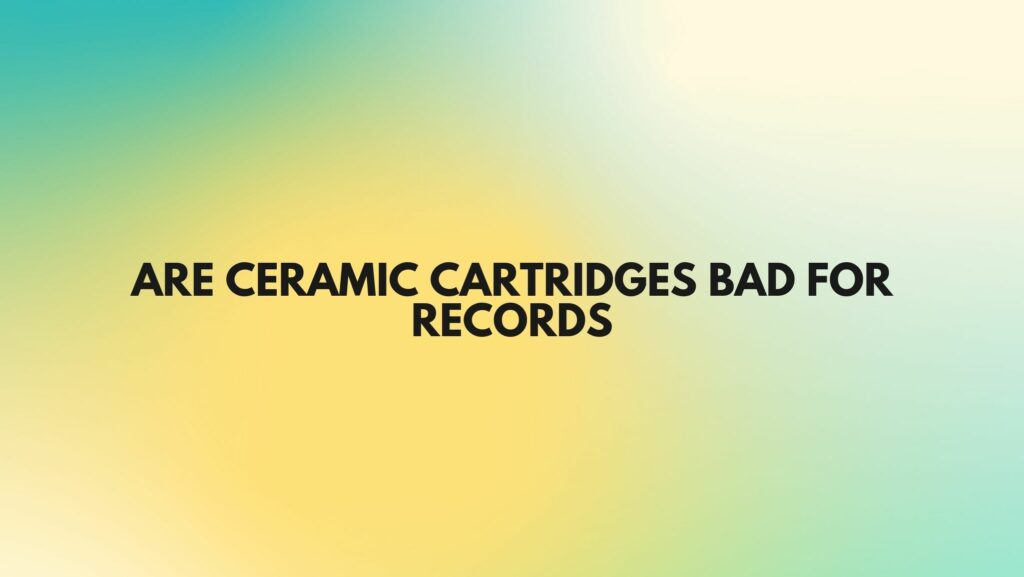Vinyl records are cherished by audiophiles and music enthusiasts for their unique sound and tactile experience. However, the quality and longevity of your vinyl collection can be influenced by various factors, including the choice of turntable cartridge. Ceramic cartridges, while less common than their magnetic counterparts, have raised concerns about their impact on records. In this comprehensive article, we will explore the question of whether ceramic cartridges are bad for records, examining the potential risks and benefits.
Understanding Ceramic Cartridges
Ceramic cartridges are a type of phono cartridge that uses a ceramic element as the transducer. This ceramic element, often piezoelectric, generates electrical signals when mechanical vibrations from the stylus tracking the grooves of a vinyl record are converted into electrical signals. These signals are then sent to the amplifier, allowing the audio to be played through speakers.
The Concerns about Ceramic Cartridges
The potential drawbacks associated with ceramic cartridges that raise concerns about their impact on vinyl records include:
- Tracking Force: Ceramic cartridges can exert higher tracking forces on records, which can increase wear and tear over time. Excessive tracking force can lead to groove damage, particularly if the stylus pressure is not correctly adjusted.
- Sound Quality: Some audiophiles argue that ceramic cartridges produce a less refined and less accurate sound compared to magnetic cartridges, which can affect the overall listening experience. This argument is more focused on sound quality than physical record wear.
- Durability: While ceramic cartridges are known for their durability and resistance to wear, the stylus itself can wear out over time. As the stylus degrades, it may not track the grooves as accurately, potentially affecting the record’s condition.
Balancing the Concerns
It’s important to note that the impact of a cartridge on records goes beyond its type. Many other factors play a significant role in preserving the condition of your vinyl collection:
- Tracking Force and Alignment: Proper setup and calibration of the turntable, including tracking force and alignment, are critical to minimize wear and ensure the stylus follows the grooves accurately.
- Stylus Quality: The quality and condition of the stylus itself are crucial. Regular stylus inspection, cleaning, and replacement when necessary can help reduce potential damage to records.
- Maintenance: Regular maintenance of your turntable, including keeping it clean, ensuring proper alignment, and using a good-quality slipmat, can contribute to preserving your vinyl records.
- Vinyl Record Condition: The condition of the records themselves, including cleanliness and the presence of debris or damage, significantly impacts their longevity.
Conclusion
The question of whether ceramic cartridges are bad for records is multifaceted. While ceramic cartridges can exert higher tracking forces, potentially increasing wear and tear, they are just one part of the equation. Proper setup, stylus quality, and regular maintenance play equally critical roles in protecting the condition of your vinyl records. If you have concerns about the potential impact of a ceramic cartridge, you may consider switching to a magnetic cartridge, which is known for its accurate sound reproduction and often exerts less tracking force. However, the most important factor in preserving your vinyl records is responsible and attentive record care and turntable maintenance, regardless of the cartridge type used.

